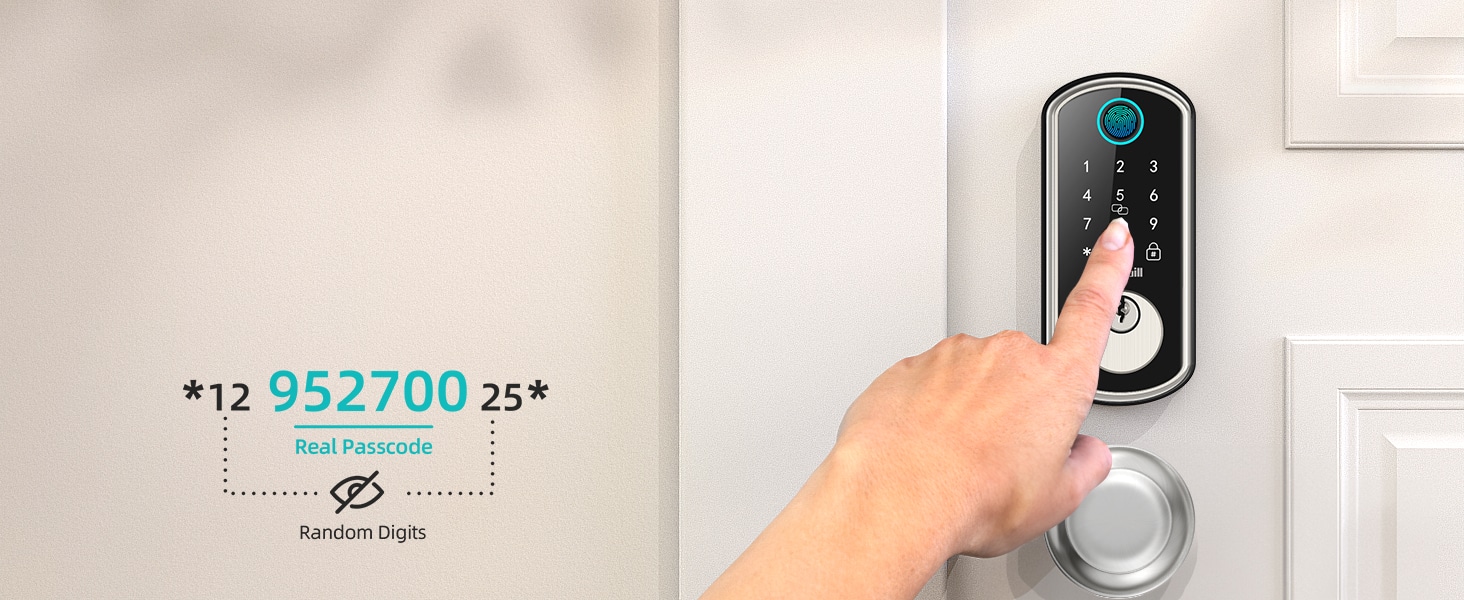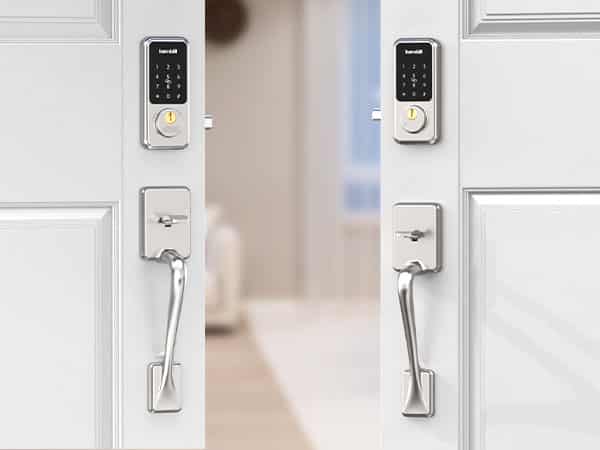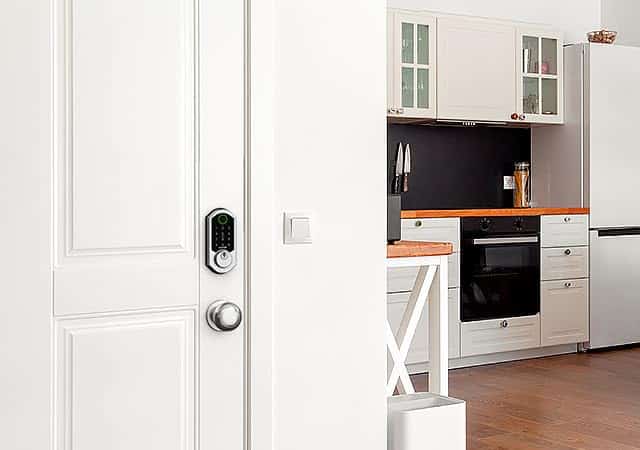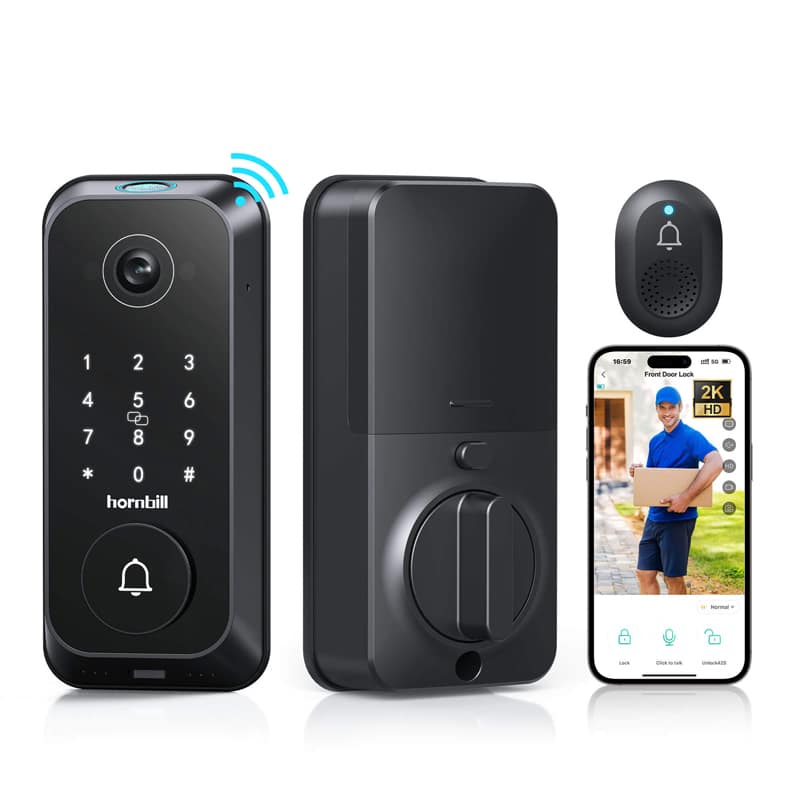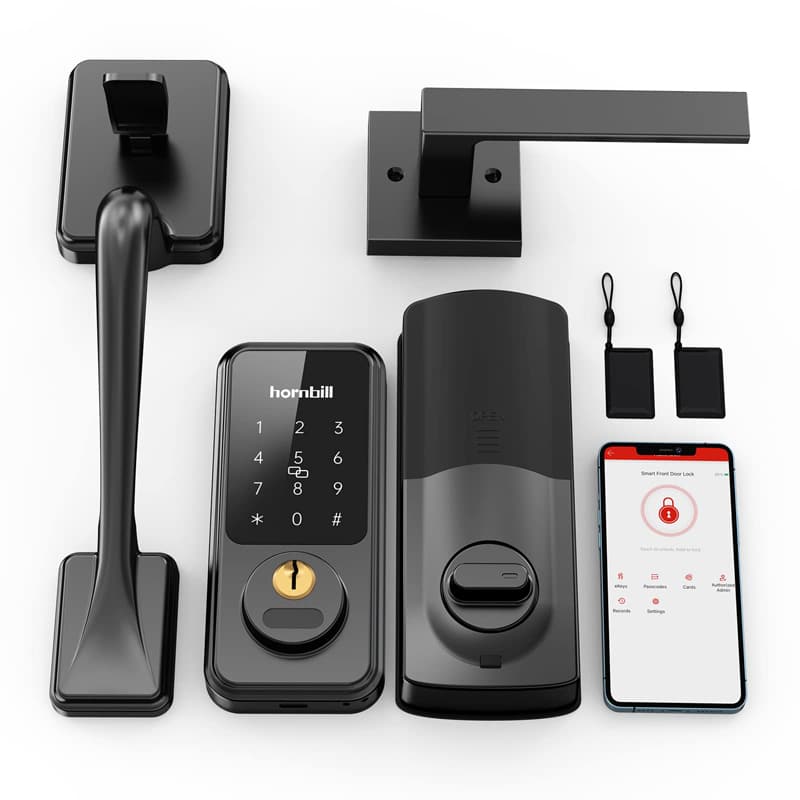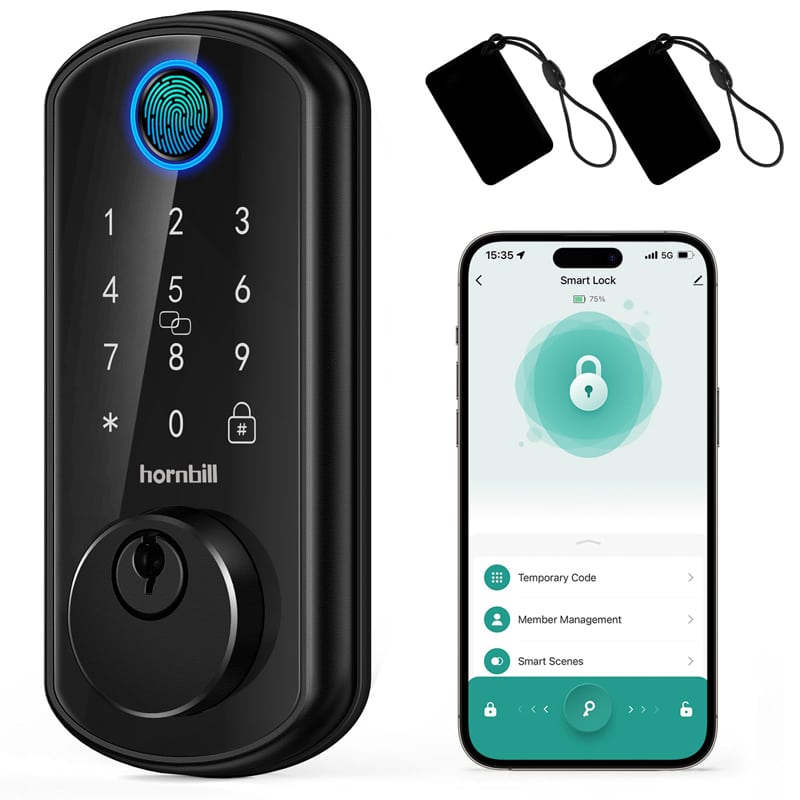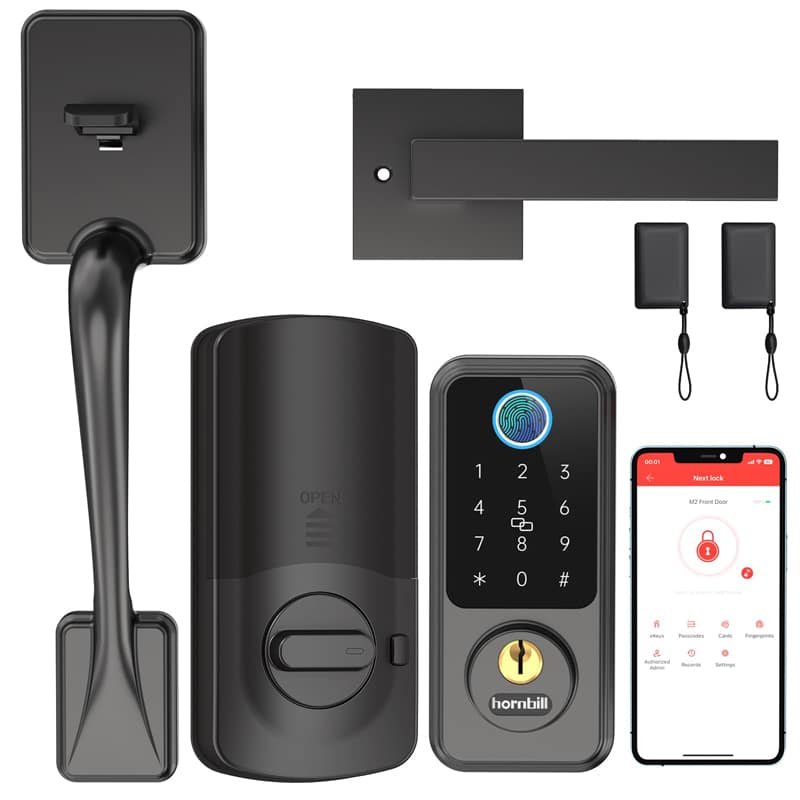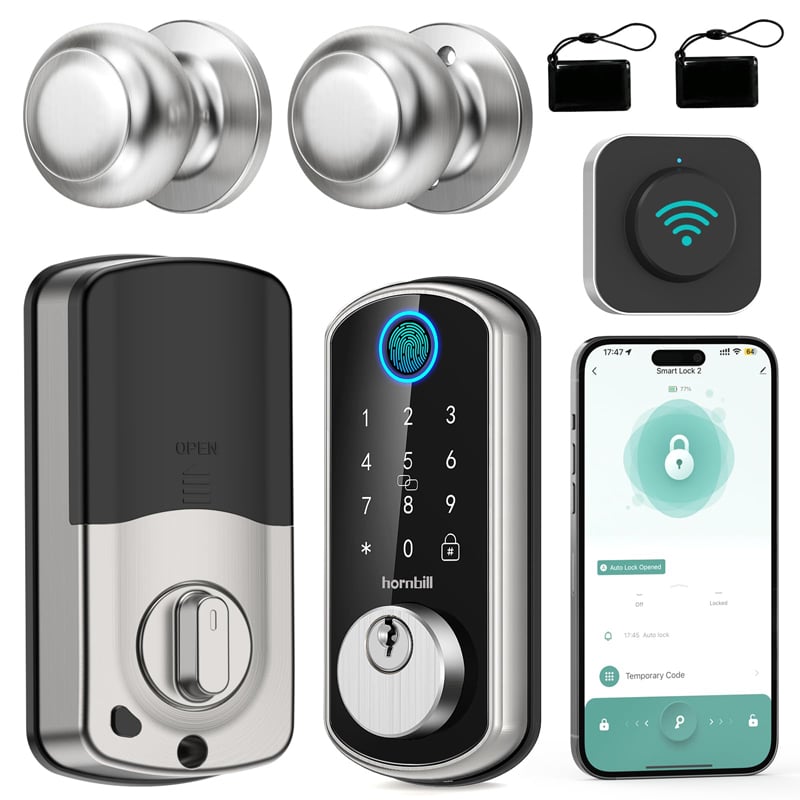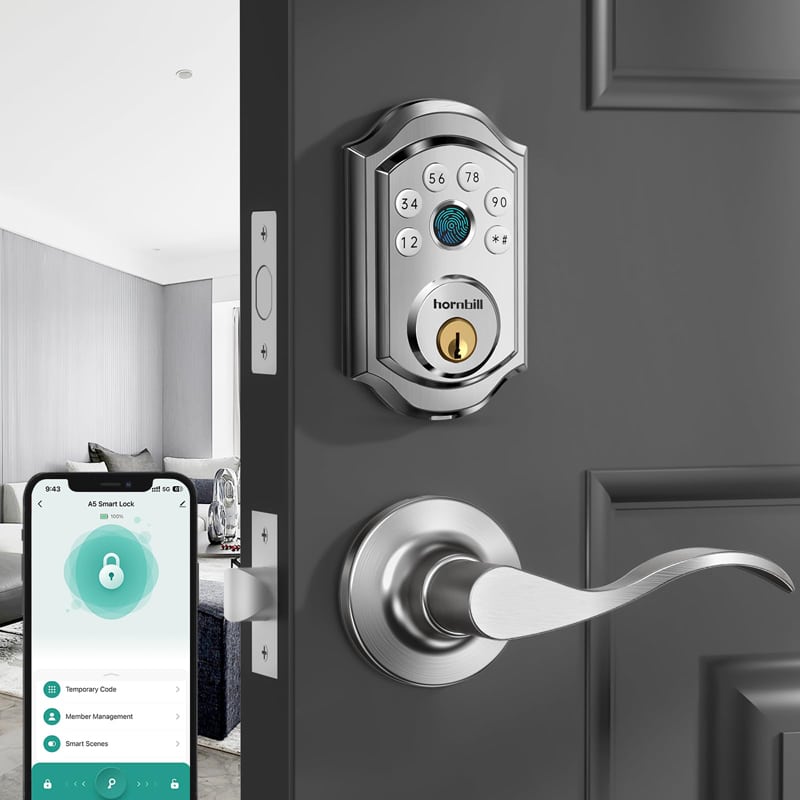Smart lock door handles take home security to a new level with their advanced technology and features. However, the question of which connectivity option offers better security and reliability often comes into play while selecting a suitable smart lock. There are three key wireless connectivity options available for smart locks: Bluetooth, Wi-Fi, and Z-Wave.
Bluetooth deadbolt door lock connectivity relies on short-range communication between your smart lock and a smartphone or fob. The main advantage of Bluetooth is that it does not rely on an internet connection, eliminating the risk of hacking via the internet. However, Bluetooth has a limited range, and you may not be able to control the lock remotely if you are not within a certain distance. Also, older versions of Bluetooth are less secure and can be susceptible to “sniffing” attacks.
Electronic deadbolt lock wifi connect directly to your home’s Wi-Fi network, allowing for remote access and control from anywhere in the world. This means you can check the status of your lock, lock or unlock it, and even receive alerts directly to your smartphone, irrespective of your location. Though this adds a great deal of convenience, it also presents potential security risks. If the best wifi lock for home’s security is compromised, your smart lock is at risk. Hence, a strong, secure, and encrypted Wi-Fi network is essential.
Z-Wave connection
Z-Wave is a wireless communication protocol widely used in home automation devices, including smart locks. Z-Wave locks require a z wave door lock app, connected to your router, to translate the signal for remote access. Since Z-Wave operates on a different frequency, there is less chance of interference with other devices. It uses AES 128-bit symmetric encryption, the same level of security used in online banking, making it extremely secure. However, the requirement for an additional hub can sometimes be viewed as a drawback.
In terms of security, Z-Wave arguably has the upper hand due to its robust encryption and dedicated frequency. However, in terms of reliability, the choice largely depends on your individual circumstances. For instance, Wi-Fi would be more reliable if you often require remote access to your lock, while Bluetooth can be a reliable option for tech-savvy users who prefer to keep things local.
The crucial factor across all these connectivity options is to ensure that the supporting network, whether Bluetooth, Wi-Fi, or Z-Wave, is secure and properly configured. Regular updates should always be applied to keep the device’s security up-to-date against any potential threats.
So, while each connectivity option for smart locks comes with its pros and cons, a robust set-up, regular maintenance and updates, and conscious use can make any of the three a safe and reliable choice.


